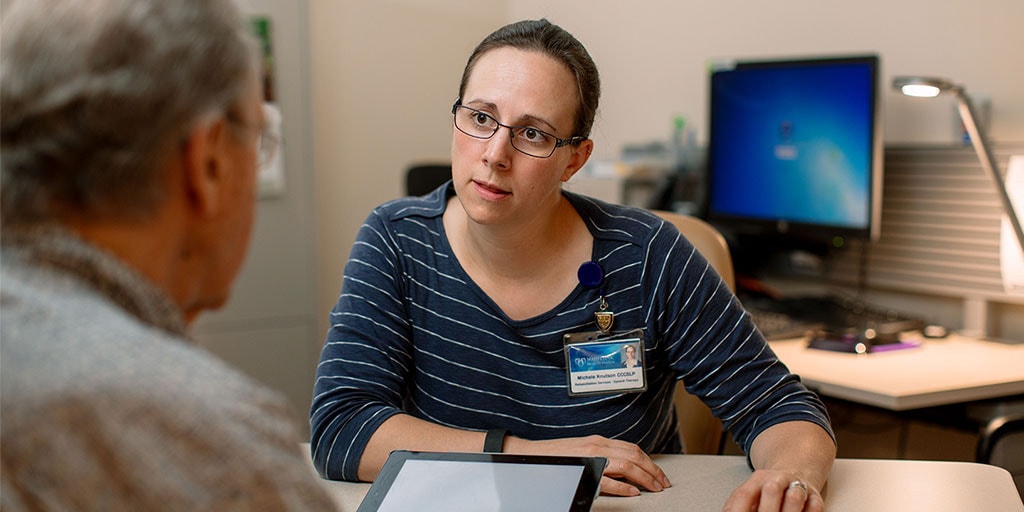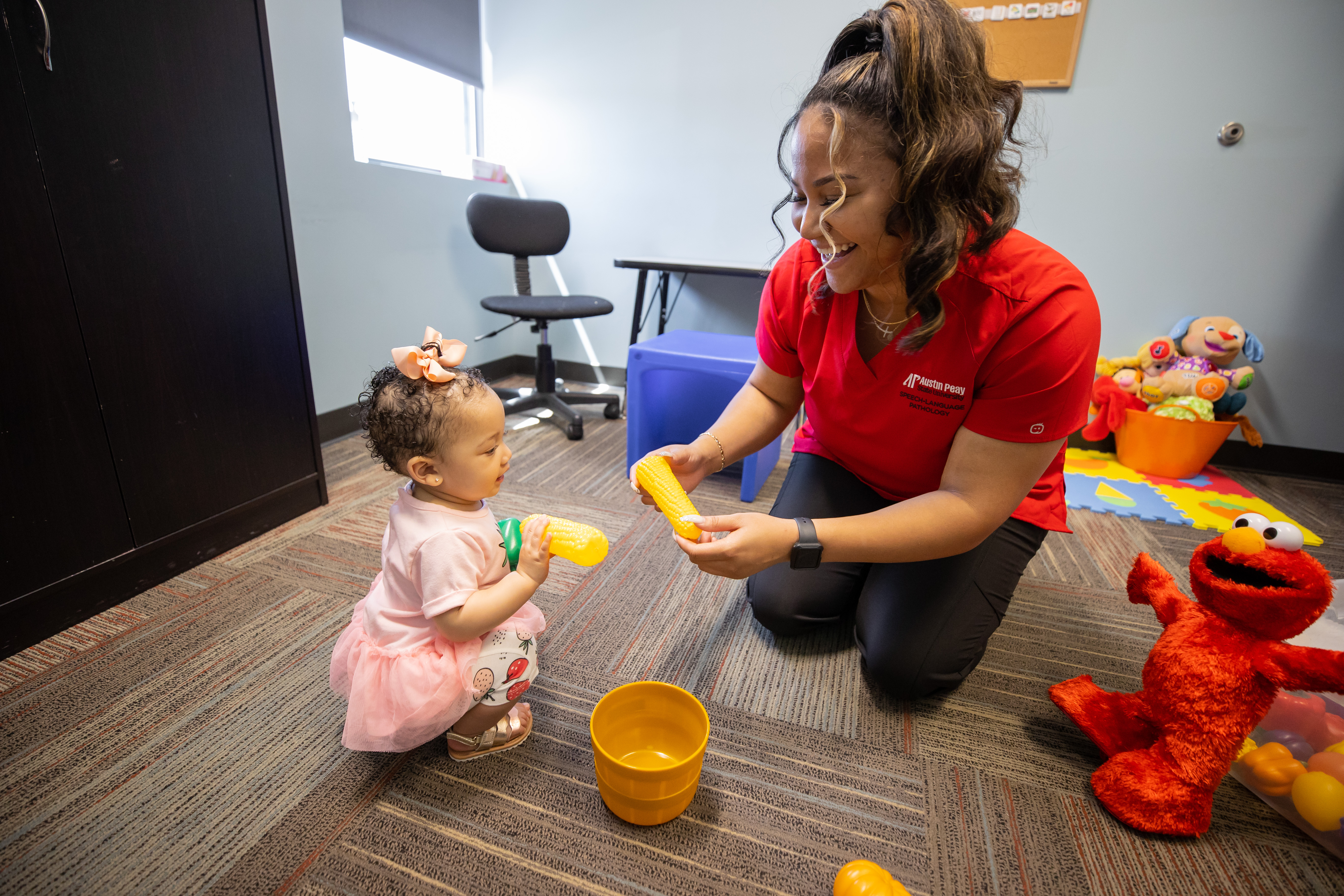How a Speech Pathologist Can Help Develop Communication Skills
How a Speech Pathologist Can Help Develop Communication Skills
Blog Article
Exactly How a Speech Pathologist Can Assist Improve Interaction Skills
Effective interaction is a foundation of personal and specialist success, yet lots of individuals encounter difficulties that hinder their capacity to reveal themselves plainly. A speech pathologist is furnished to deal with these obstacles through targeted analysis and intervention approaches customized to each individual's requirements.
Understanding Interaction Disorders
Comprehending interaction conditions is important for recognizing how they influence individuals' capacity to express themselves and involve with others. Communication conditions encompass a vast array of problems that influence speech, language, and social interaction, commonly hindering efficient communication. These conditions can emerge from various aspects, consisting of neurological conditions, developmental hold-ups, physical impairments, or mental concerns.
Speech disorders may show up as problems in fluency, voice, or articulation production, affecting how words are pronounced or talked. Language conditions, on the various other hand, involve difficulties in understanding or making use of language, which can impede both non-verbal and verbal interaction. Social communication conditions are defined by difficulties in the pragmatic elements of interaction, such as taking turns in conversation or understanding social cues.
The repercussions of communication conditions are profound, impacting not only the individual's ability to convey emotions and thoughts but likewise their social partnerships, educational opportunities, and overall lifestyle. Awareness of these disorders can foster compassion and assistance, urging reliable approaches for interaction and involvement. Recognizing the intricacies of communication disorders is a vital action in the direction of advertising inclusivity and attending to the requirements of those impacted.
Role of a Speech Pathologist
Speech pathologists frequently play an essential duty in treating and diagnosing interaction conditions, utilizing a series of evidence-based techniques customized to every individual's demands. These specialists collaborate with individuals throughout the life expectancy, from kids with speech hold-ups to grownups recouping from strokes or terrible brain injuries. Their knowledge encompasses a selection of communication concerns, consisting of articulation, voice, fluency, and language problems.
In therapeutic settings, speech pathologists utilize structured treatments developed to improve interaction skills. They might execute strategies such as speech workouts, language games, and social interaction training to facilitate enhancements in receptive and meaningful language abilities. Speech Pathologist. In addition, they educate customers and their families regarding reliable communication strategies and adaptive methods to browse everyday communications
Beyond straight therapy, speech pathologists team up with other health care instructors, professionals, and caregivers to make sure a thorough method to treatment. They advocate for customers by giving resources and support, allowing people to attain their interaction goals and enhance their total quality of life. As experts in the field, speech pathologists are crucial in fostering effective communication, promoting self-reliance, and improving social engagement for those with interaction challenges.
Assessment and Diagnosis Process
The assessment and diagnosis process conducted by speech pathologists generally includes a detailed analysis to recognize interaction problems precisely. This procedure begins with an in-depth situation background, where the clinician gathers important info regarding the individual's medical, instructional, and developing history. Recognizing the context of the person's interaction problems is vital for a precise diagnosis.
Following the medical history, speech pathologists use informal assessments and standard examinations to assess various facets of visit this site communication, consisting of speech noise production, language understanding, expressive language, and social interaction skills. These assessments are tailored to the person's age and certain issues, providing beneficial data for evaluation.
Monitoring is also an essential element of the evaluation process, as it enables the medical professional to see direct exactly how the specific communicates in natural settings. Furthermore, interviews with member of the family and teachers can give understanding into the person's interaction challenges throughout different atmospheres.
Once the analysis is complete, the speech pathologist manufactures the findings to identify a medical diagnosis and suggest appropriate interventions. This thorough analysis procedure guarantees that people receive targeted assistance customized to their distinct interaction demands, laying the foundation for reliable therapeutic approaches.
Therapeutic Methods and Approaches
Numerous restorative methods and approaches are employed by speech pathologists to attend to a variety of interaction problems effectively. One commonly used approach is expression therapy, which concentrates on fixing speech sounds with rep and visual cues. This technique is especially valuable for people with speech sound disorders.
An additional effective technique is official website language intervention, which improves both meaningful and responsive language abilities. This might include interactive tasks that advertise vocabulary growth, syntax understanding, and conversational abilities. In addition, speech pathologists frequently use social skills training to improve practical language capacities, allowing people to navigate social interactions much see here now more successfully.
Fluency shaping and stuttering modification techniques are specifically created to aid those experiencing fluency problems. These strategies aid customers establish smoother speech patterns and manage the physical and emotional parts of stuttering.
Additionally, augmentative and different communication (AAC) systems are employed for people with serious communication impairments. These systems, which can consist of motions, symbols, or digital gadgets, provide essential assistance for efficient communication.
Advantages of Speech Treatment

In addition, speech therapy can assist in developing essential listening and understanding skills, fostering better interaction in discussions. People with cognitive-communication conditions can also profit, as therapy concentrates on strengthening memory and analytic capabilities, vital for effective interaction.
One more vital aspect is the psychological support provided throughout therapy sessions. Speech pathologists develop a risk-free environment, motivating clients to conquer anxiety and stress pertaining to their communication problems. This support can bring about enhanced self-worth and general mental well-being.
Additionally, early treatment through speech treatment can prevent more problems, making certain that individuals reach their full communicative potential. Generally, the benefits of speech therapy expand beyond simple speech renovation, positively influencing various dimensions of life for those influenced by communication troubles.
Final Thought
In recap, speech pathologists play an essential duty in addressing communication conditions via evaluation, medical diagnosis, and customized restorative treatments. By using evidence-based techniques, these experts boost people' speech and language capabilities, promoting enhanced quality, fluency, and social communication skills. The benefits of very early treatment emphasize the importance of seeking help from speech pathologists, as their knowledge can substantially boost communicative possibility, ultimately resulting in higher success in both expert and individual rounds.

Speech pathologists frequently play an important function in diagnosing and dealing with communication problems, using a range of evidence-based methods customized to each person's needs. As experts in the field, speech pathologists are crucial in fostering efficient interaction, advertising independence, and enhancing social involvement for those with communication difficulties.

Report this page